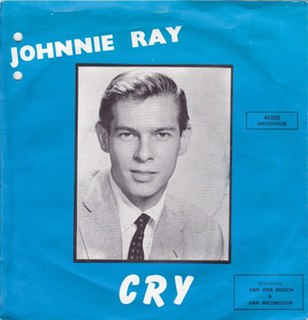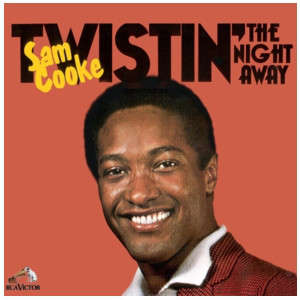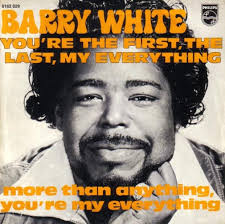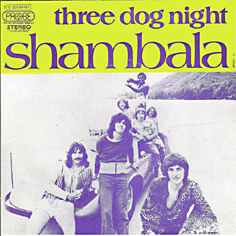
"Me and Bobby McGee" is a song written by American singer-songwriter Kris Kristofferson and originally performed by Roger Miller. Fred Foster shares the writing credit, as Kristofferson intended. A posthumously released version by Janis Joplin topped the U.S. singles chart in 1971, making the song the second posthumously released No. 1 single in U.S. chart history after "(Sittin' On) The Dock of the Bay" by Otis Redding. Jerry Lee Lewis also released a version reaching number 1 on the country charts in 1971. Billboard ranked Joplin's version as the No. 11 song for 1971.

"Get Ready" is a Motown song written by Smokey Robinson, which resulted in two hit records for the label: a U.S. No. 29 version by The Temptations in 1966, and a U.S. No. 4 version by Rare Earth in 1970. It is significant for being the last song Robinson wrote and produced for the Temptations, due to a deal Berry Gordy made with Norman Whitfield, that if "Get Ready" did not meet with the expected degree of success, then Whitfield's song, "Ain't Too Proud to Beg", would get the next release, which resulted in Whitfield more or less replacing Robinson as the group's producer.

"The Way You Do the Things You Do" is a 1964 hit single by the Temptations for the Gordy (Motown) label. Written by Miracles members Smokey Robinson and Bobby Rogers, the single was the Temptations' first charting single on the Billboard Hot 100, peaking in the Top 20 at number eleven; it also went to number one on the Cash Box R&B chart. The song has been an American Top 40 hit in four successive decades, from the 1960s to the 1990s. A version by Hall & Oates featuring Temptation members Eddie Kendricks and David Ruffin was nominated for a Grammy Award in 1986. A cover version by British reggae band UB40 hit number six in the U.S. in 1990.

"Abraham, Martin and John" is a 1968 song written by Dick Holler. It was first recorded by Dion, but became more famous via the 1969 recording by Marvin Gaye, with an orchestral arrangement by Norman Whitfield. It is a tribute to the memory of four assassinated Americans, all icons of social change: Abraham Lincoln, Martin Luther King Jr., John F. Kennedy, and Robert F. Kennedy. It was written in response to the assassination of King and that of Robert Kennedy in April and June 1968, respectively.

"White Christmas" is an Irving Berlin song reminiscing about an old-fashioned Christmas setting. The song was written by Berlin for the musical film Holiday Inn, released in 1942. The composition won the Academy Award for Best Original Song at the 15th Academy Awards.

"Cry" is a 1951 popular song written by Churchill Kohlman. The song was first recorded by Ruth Casey on the Cadillac label. The biggest hit version was recorded in New York City by Johnnie Ray and The Four Lads on October 16, 1951. Singer Ronnie Dove also had a big hit with the song in 1966.
"Deep Purple" was the biggest hit written by pianist Peter DeRose, who broadcast, 1923 to 1939, with May Singhi as "The Sweethearts of the Air" on the NBC radio network. "Deep Purple" was published in 1933 as a piano composition. The following year, Paul Whiteman had it scored for his suave "big band" orchestra that was "making a lady out of jazz" in Whiteman's phrase. "Deep Purple" became so popular in sheet music sales that Mitchell Parish added lyrics in 1938.
"Try a Little Tenderness" is a song written by Jimmy Campbell, Reg Connelly, and Harry M. Woods. It was first recorded on December 8, 1932, by the Ray Noble Orchestra. Another version, also recorded in 1932 was made by Charlie Palloy & his Orchestra. (Ted Lewis and Ruth Etting had hits with it in 1933. Bing Crosby also recorded it on January 9, 1933 for Brunswick Records. A version by Bob and Alf Pearson was also released in 1933.

"If You Don't Know Me by Now" is a song written by Kenny Gamble and Leon Huff, and recorded by the Philadelphia soul musical group Harold Melvin & the Blue Notes. It became their first hit after being released as a single in September 1972, topping the US R&B chart and peaking at number 3 on the US Billboard Hot 100.

"Twistin' the Night Away" is a song written and recorded by Sam Cooke. It was released as a single in 1962 and became very popular, charting in the top ten of both the Billboard Hot 100 (#9) and Billboard's R&B chart (#1). "Twistin' the Night Away" was successful overseas as well, peaking at #6 on the UK Singles Chart.

"Help Me Make It Through The Night" is a country music ballad written and composed by Kris Kristofferson and released on his 1970 album Kristofferson. It was covered later in 1970 by Sammi Smith, on the album Help Me Make It Through the Night.

"You're the First, the Last, My Everything" is a song recorded by Barry White from his third studio album Can't Get Enough (1974). The song was written by White, Tony Sepe and Peter Radcliffe and produced by White.

"Shambala" is a song written by Daniel Moore and made famous by two near-simultaneous releases in 1973: the better-known but slightly later recording by Three Dog Night, which reached No. 3 on the Billboard Hot 100, and a version by B. W. Stevenson. Its title derives from a mythical place-name also spelled Shamballa or Shambhala.

"Drivin' My Life Away" is a song co-written and recorded by American country music artist Eddie Rabbitt. The song was written by Rabbitt, Even Stevens and David Malloy.

"An Old Fashioned Love Song" is a 1971 song written by Paul Williams and performed by the American pop-rock band Three Dog Night. Chuck Negron performed the lead vocal on this track. Taken as the first single from their 1971 album, Harmony, the song peaked at number 4 on the Billboard Hot 100 chart in December 1971, becoming the band's seventh top-ten hit. It was Three Dog Night's first record to top the U.S. easy listening chart. It reached number 2 in Canada. Its lyrics suggest the straightforward and melodic nature of the tune: Just an old fashioned love song / Comin' down in three part harmony / Just an old fashioned love song / One I'm sure they wrote for you and me.
"One" is a song written and recorded by Harry Nilsson and made famous by Three Dog Night whose recording reached number five on the U.S. Billboard Hot 100 in 1969 and number four in Canada. It is known for its opening line "One is the loneliest number that you'll ever do". Nilsson wrote the song after calling someone and getting a busy signal. He stayed on the line listening to the "beep, beep, beep, beep..." tone, writing the song. The busy signal became the opening notes.

"Never Been to Spain" is a song written by Hoyt Axton, originally released on his 1971 LP Joy to the World and later that year performed by Three Dog Night, with Cory Wells on lead vocal. It was featured on their 1971 album Harmony. The recording was produced by Richard Podolor.

Love Theme from "The Godfather" is the twenty-ninth studio album by American pop singer Andy Williams, released on March 21, 1972, by Columbia Records. The two new songs on what was otherwise another LP of covers of hits by other artists were the title track and "Music from Across the Way", which came from the songwriters behind his recent hits "Happy Heart" and "(Where Do I Begin) Love Story".

You've Got a Friend is an album by American pop singer Johnny Mathis that was released on August 11, 1971, by Columbia Records. The phrase "Today's Great Hits" can be found above the title on both sides of the record jacket as well as both sides of the LP label as if to emphasize that this is essentially an album covering songs that were recently on the charts. This was a common practice of many vocalists of the period, so much so in fact that fellow Columbia artist Andy Williams also released an album titled You've Got a Friend in August 1971 on which he coincidentally covers seven of the 11 tracks that Mathis recorded for this album.

"Out in the Country" is a song written by Paul Williams and Roger Nichols and performed by Three Dog Night. It was produced by Richard Podolor, and was featured on their 1970 album, It Ain't Easy. In the US, "Out in the Country" peaked at number 11 on the US adult contemporary chart, and number 15 on the Billboard Hot 100 chart on October 17, 1970. Outside the US, the record reached number 9 in Canada, Released in the first year of Earth Day, "Out in the Country" was an early environmental advocacy song. The lyrics are about finding solace outside the city, "before the breathing air is gone..."

















